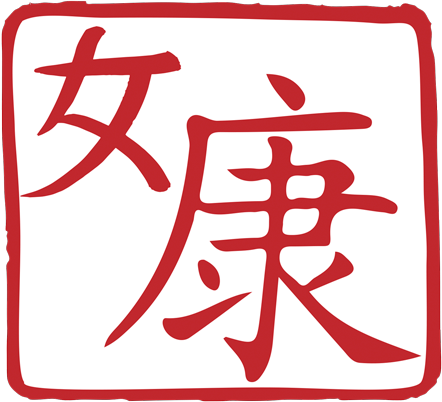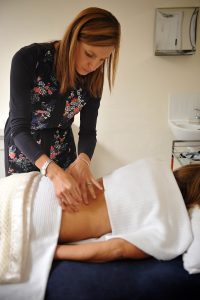This time of year is one of change, of letting go, of new beginnings – all of which can lead to anxiety. Tiffany Black shares how acupuncture is here to help so that your autumn will go more smoothly

Time of change
It is a complicated time of year for many because autumn is fundamentally about change. We see this in the natural world, as the trees begin to turn and days shorten. There are still glimpses of summer in the odd golden day. But, despite this being the season of ‘mist and mellow fruitfulness’, there is an undercurrent of urgency.
Perhaps it is a hang up from times gone past when there was a race against the season to harvest and lay store for the winter or that now we are continually reminded that the big ‘C’ is just around the corner? Either way – end-of-year targets need to be met, business strategies written, children settled into new schools and students embark on college and university.
New January

All of these situations can contribute to feeling unsettled and anxious – but acupuncture is here to help.
So how can acupuncture help?
Acupuncture can be so beneficial at this time because it can rebalance your emotions and alleviate the unease of anxiety – settling those feelings of being on edge, helping to resolve sleep issues and digestive problems that can all stem from stress.
Anxiety and stress occur when our flight-or-fight nervous system is stimulated. At this time of year, when it can feel as if we are being bombarded from all angles our nervous system is on constant high alert. Acupuncture is thought to stimulate the nervous system and cause the release of neurochemical messenger molecules. The cascading effect of the biochemical changes stimulated by the acupuncture needles influences the body’s homeostatic mechanisms, thus promoting physical and emotional wellbeing.
As well as helping with anxiety at times of change, acupuncture can also be very helpful for deep-rooted long-term anxiety conditions.
How does it rebalance you?
Acupuncture is all about restoring balance and harmony in the body and mind. From my experience, patients often don’t realise how stressed they are until after an acupuncture treatment. By inserting fine needles, I aim to settle the patient’s Qi, or energy, and it is heart-warming how often patients feedback that they feel immediately calmer and more like themselves.
How many treatments would this involve?
Within a few treatments, patients report that they feel more able to cope with life and its challenges. Patients may often have a few sessions and then choose to come every few weeks or a couple of times a year to keep themselves ‘topped up’. Patients find it an invaluable tool to fall back on in times of stress and to maintain their physical and mental wellbeing.
Time to take stock

The beauty of acupuncture is that it can also be safely combined with conventional treatments such as medication or therapy (Courbasson, 2007) and is known to reduce any unwanted side-effects of anxiety medications. (Yuan, 2007).
Evidence in the treatment of anxiety with acupuncture
Research has shown that acupuncture treatment may specifically benefit anxiety disorders and symptoms of anxiety by:
- Acting on areas of the brain known to reduce sensitivity to pain and stress, as well as promoting relaxation and deactivating the ‘analytical’ brain, which is responsible for anxiety and worry (Hui, 2010).
- Activating the parasympathetic nervous system, which initiates the relaxation response.
- Reversing pathological changes in levels of inflammatory cytokines that are associated with anxiety (Arranz, 2007)
- Regulating levels of neurotransmitters and hormones such as serotonin, noradrenaline, dopamine, GABA, neuropeptide Y and ACTH; hence altering the brain’s mood chemistry to help to combat negative affective states (Lee 2009; Samuels 2008; Zhou 2008; Yuan 2007); and by
- Reversing stress-induced changes in behaviour and biochemistry (Kim 2009).
For further research see the British Acupuncture Council.
References
- Arranz, L. et al (2007) ‘Effect of acupuncture treatment on the immune function impairment found in anxious women’, American Journal of Chinese Medicine, vol 35, no 1, pp35-51
- Courbasson, C.M. et al (2007) ‘Acupuncture treatment for women with concurrent substance use and anxiety/depression: an effective alternative therapy?’, Family & Community Health, vol 30, no 2, pp112-20
- Hui, K.K. et al (2010) ‘Acupuncture, the limbic system, and the anticorrelated networks of the brain’, Auton Neuroscience, 28 October, vol 157, no 1-2, pp81-90.
- Kim, H. et al (2009) ‘The effects of acupuncture stimulation at PC6 (Neiguan) on chronic mild stress-induced biochemical and behavioral responses’, Neuroscience Letters, vol 460, no 1, pp56-60
- Lee, B. et al (2009) ‘Effects of acupuncture on chronic corticosterone-induced depression-like behavior and expression of neuropeptide Y in the rats’, Neuroscience Letters, vol 453, pp151-6
- Samuels, N. et al (2008) ‘Acupuncture for psychiatric illness: a literature review’, Behav Med, no 34, pp55-64
- Yuan, Q., Li, J.-N., Liu, B., Wu, Z.-F., Jin, R. (2007) ‘Effect of Jin-3-needling therapy on plasma corticosteroid, adrenocorticotropic hormone and platelet 5-HT levels in patients with generalized anxiety disorder’, Chinese Journal of Integrative Medicine, vol 13, no 4, pp264-68
- Zhou, Q. et al (2008) ‘The effect of electro-acupuncture on the imbalance between monoamine neurotransmitters and GABA in the CNS of rats with chronic emotional stress-induced anxiety’, International Journal of Clinical Acupuncture, no 17, pp79-84



